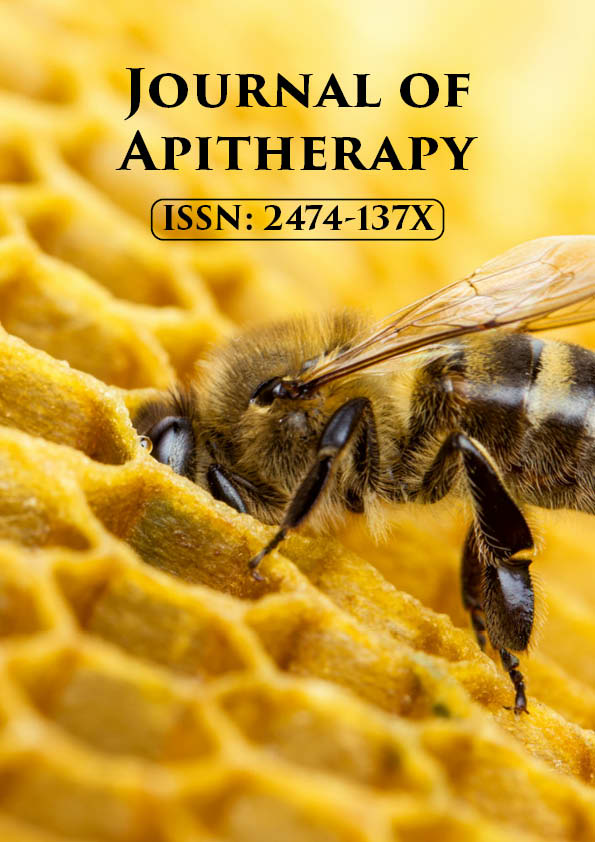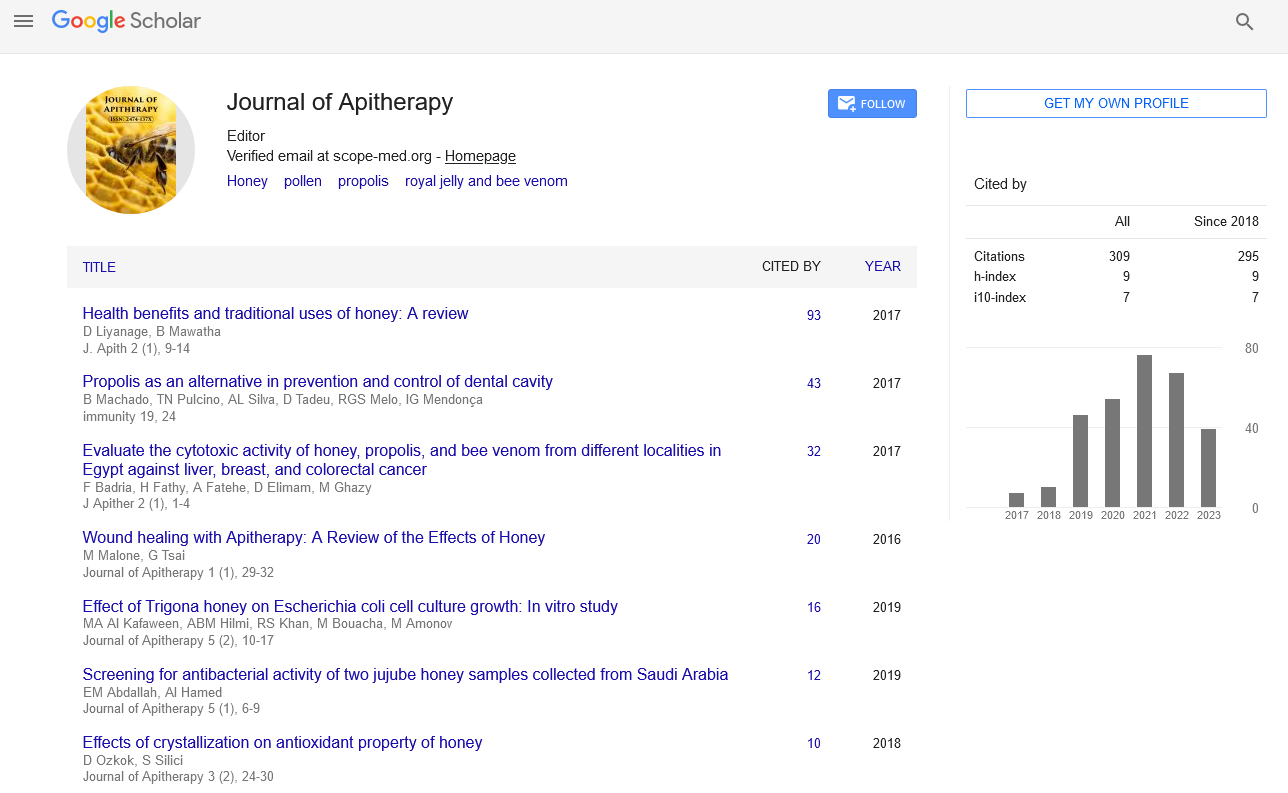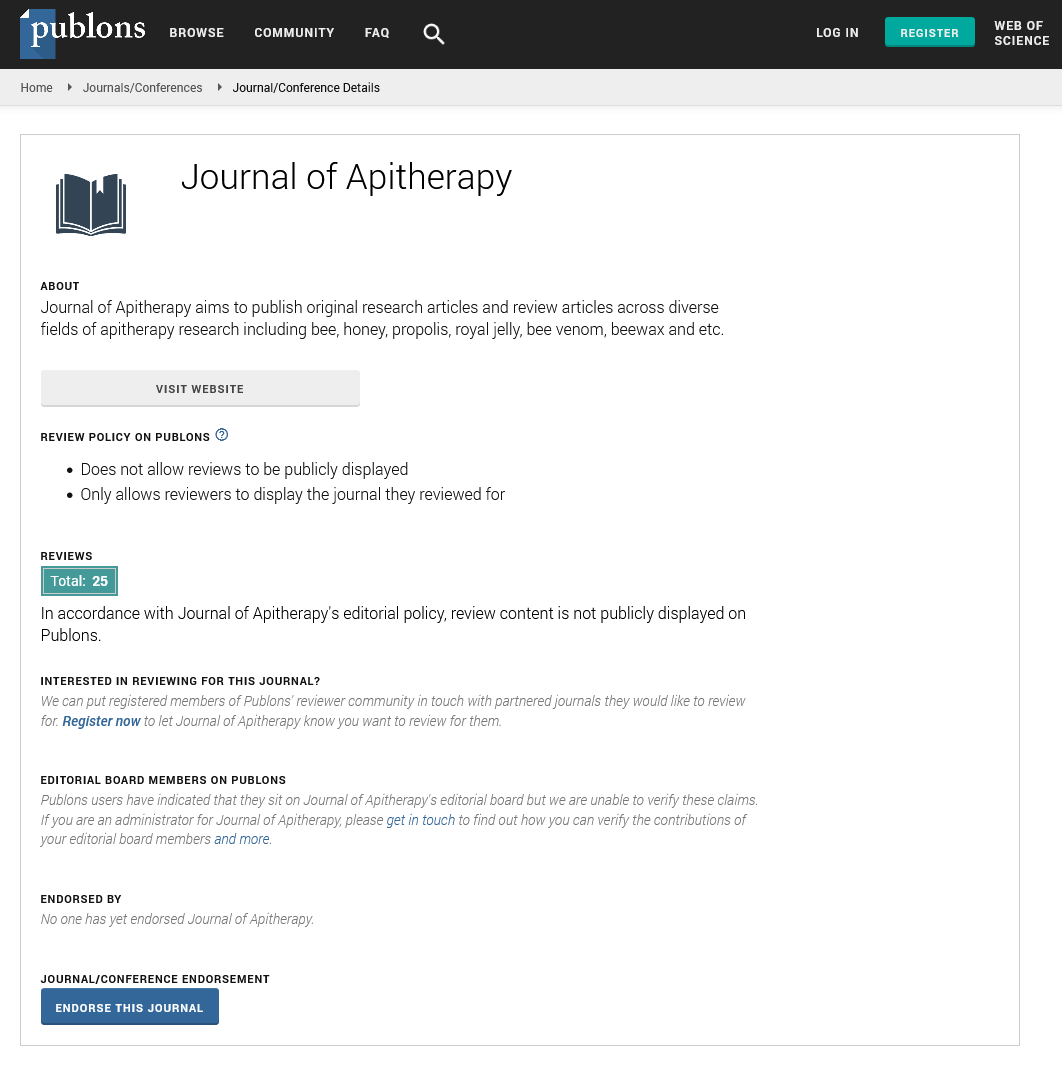Prospective - Journal of Apitherapy (2023)
Beekeeping for Mental Health: Nurturing Well-Being through Apiculture
Andrea Colomar*Andrea Colomar, Department of Forensic Medicine and Toxicology, Zagazig University, Egypt, Email: Andrea@gmail.com
Received: 09-Sep-2023, Manuscript No. JAPITHERAPY-23-122290; Editor assigned: 11-Sep-2023, Pre QC No. JAPITHERAPY-23-122290 (PQ); Reviewed: 25-Sep-2023, QC No. JAPITHERAPY-23-122290; Revised: 02-Oct-2023, Manuscript No. JAPITHERAPY-23-122290 (R); Published: 09-Oct-2023
Description
Beekeeping, also known as apiculture, is an ancient practice that involves the maintenance of bee colonies for the production of honey, beeswax, and other bee-related products. While the benefits of beekeeping on agricultural and ecological fronts are well-established, there is a growing recognition of the positive impact beekeeping can have on mental health. This article explores the therapeutic aspects of beekeeping, shedding light on its potential to alleviate stress, promote mindfulness, and contribute to overall mental well-being.
Connection between nature and mental health
The modern lifestyle, characterized by urbanization and technology, often leads to a disconnection from nature. This disconnection has been associated with an array of mental health challenges, including stress, anxiety, and depression. Recognizing the need to reconnect with the natural world, individuals and mental health professionals are turning to activities like beekeeping as a holistic approach to mental well-being.
Stress reduction: Beekeeping provides an immersive experience in nature, allowing individuals to escape the hustle and bustle of daily life. The rhythmic hum of bees, the gentle buzz around the hive, and the sights and smells of the apiary contribute to a serene environment. Research suggests that exposure to nature and natural settings can significantly reduce stress levels and promote a sense of calm.
Mindfulness and focus: Beekeeping demands a certain level of focus and presence. The careful inspection of hives, monitoring bee behavior, and performing hive maintenance require individuals to be fully engaged in the task at hand. This mindfulness practice can be a therapeutic antidote to the constant distractions and mental chatter that characterize modern living. Beekeepers often find a deep sense of satisfaction in being fully present with their bees, fostering a mindful connection to the present moment.
Sense of purpose and achievement: Beekeeping involves a series of tasks and responsibilities, from hive management to honey extraction. For individuals struggling with mental health challenges, having a structured routine and a sense of purpose can be invaluable. The sense of achievement derived from successfully caring for a colony and harvesting honey can boost self-esteem and provide a tangible measure of progress.
Community and social interaction: Beekeeping is often a communal activity, fostering a sense of community among beekeepers. Joining a local beekeeping club or participating in workshops provides opportunities for social interaction, reducing feelings of isolation. The shared passion for beekeeping creates a supportive network where individuals can exchange knowledge, experiences, and emotional support.
Physical activity: Beekeeping involves physical tasks such as lifting hive boxes, inspecting frames, and tending to the needs of the colony. Engaging in regular physical activity has well-documented benefits for mental health, including the release of endorphins, improved mood, and reduced symptoms of anxiety and depression.
Beekeeping for Mental Health" explores the therapeutic benefits of apiculture. Engaging with bees fosters well-being, offering a calming and purposeful activity. The symbiotic relationship between beekeepers and their hives promotes mindfulness, reduces stress, and provides a unique avenue for mental health enhancement through the interconnected world of beekeeping.
Beekeeping, with its symbiotic blend of nature, mindfulness, and therapeutic potential, offers a unique avenue for promoting mental health and well-being. The holistic experience of tending to bee colonies, coupled with the physical and emotional benefits of apitherapy, makes beekeeping a compelling option for individuals seeking alternative approaches to mental health care. As the understanding of the intricate connection between nature and mental well-being deepens, beekeeping may emerge as a therapeutic tool not only for individuals facing mental health challenges but also for the broader population seeking a harmonious balance between the demands of modern life and the innate human need for connection with the natural world.







